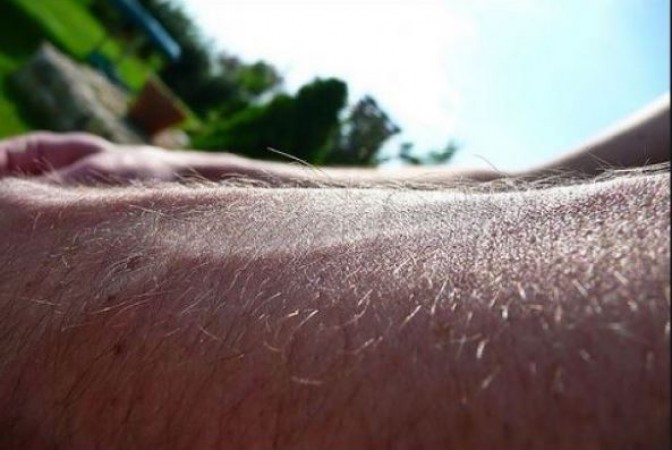
Body hair has been a topic of fascination and cultural significance across the globe for centuries. Different societies hold diverse beliefs about the presence and distribution of body hair, often associating it with various aspects of an individual's life, including their character, fortune, and even their relationships. In this article, we will explore the beliefs and myths surrounding body hair, particularly focusing on women with less body hair and men with more body hair in various cultures.
The Cultural Significance of Body Hair
Body hair is a natural part of the human anatomy, and its presence varies among individuals. While some people may have more body hair, others may have less, and this variation is primarily determined by genetics and hormonal factors. However, cultures around the world have assigned symbolic and cultural significance to body hair, leading to the development of beliefs and myths.
Women and Body Hair
In many cultures, women are expected to have less body hair, particularly on certain areas of their bodies. These cultural norms and expectations have given rise to beliefs and myths that associate body hair distribution in women with their character and fortune.
a) Excessive Hair on Women's Hands:
One common belief in some cultures suggests that women with excessive hair on their hands are more likely to be irritable and prone to conflicts. It is believed that these women may find it challenging to maintain harmonious relationships, including their marriages. This belief can lead to social stigmatization and misconceptions about the personality of women with naturally hairier hands.
However, it's essential to recognize that there is no scientific basis for such beliefs. Personality traits and the quality of relationships are influenced by various factors, including upbringing, education, and personal experiences, rather than the presence of body hair.
b) Women with Sparse or No Eyelashes:
In some cultures, women with sparse or no eyelashes are considered fortunate. They are believed to bring good luck to their families and partners. This belief might be rooted in the idea that these women possess unique qualities or are less materialistic, making them ideal life partners. Again, it is crucial to emphasize that one's eyelash density does not determine their worth or the success of their relationships. Such beliefs are purely cultural and lack scientific validity.
Men and Body Hair
In contrast to the expectations placed on women, men are often encouraged to have more body hair in some cultures. This preference for greater body hair in men has led to the development of beliefs and myths associating body hair with intelligence and character traits.
a) Abundant Body Hair in Men:
Many cultures view men with abundant body hair as lucky and intelligent. These men are thought to possess greater wisdom and knowledge. This belief is often linked to the idea that more body hair signifies a higher level of testosterone, which is associated with masculinity and assertiveness.
It's essential to note that intelligence and wisdom are not determined by the amount of body hair a person has. These attributes depend on a person's education, experiences, and innate abilities, rather than their physical appearance.
b) Men with Minimal or No Body Hair:
Conversely, men with minimal or no body hair are sometimes stigmatized as materialistic or selfish in certain cultures. It is believed that such men may prioritize their own interests over others' well-being and happiness, leading to strained relationships.
Once again, it is crucial to challenge these unfounded beliefs and emphasize that an individual's character and values are not linked to the presence or absence of body hair.
Challenging Cultural Beliefs
It is essential to approach these cultural beliefs about body hair with a critical perspective and a commitment to debunking myths that perpetuate stereotypes and prejudices. The amount of body hair a person has is primarily determined by genetics and hormonal factors, and it should not be used as a basis for judging their character, abilities, or fortune.
In modern society, we must encourage acceptance and appreciation of diversity in all its forms, including variations in body hair. People should not be judged, stigmatized, or labeled based on their natural physical attributes. Instead, we should celebrate each individual's unique qualities, irrespective of their body hair distribution.
Beliefs and myths surrounding body hair in different cultures have persisted for centuries, often attributing character traits and fortune to individuals based on their body hair distribution. However, it is crucial to recognize that these beliefs lack scientific validity and can perpetuate stereotypes and biases. In today's diverse and inclusive society, we should embrace and celebrate the uniqueness of every individual, regardless of their body hair, and challenge outdated cultural beliefs that promote discrimination and prejudice. Ultimately, our character, values, and worth are not determined by the presence or absence of body hair but by our actions and contributions to society.
Eating on Banana Leaf: A Stylish and Healthy Tradition
World Lymphoma Awareness Day 2023: Understanding the Link Between Breast Implants and Lymphoma
Coffee Drinking in the Morning? Things to Consider for a Healthy Start